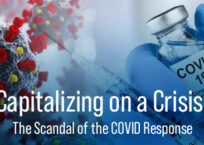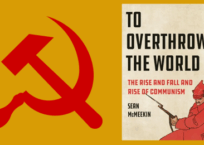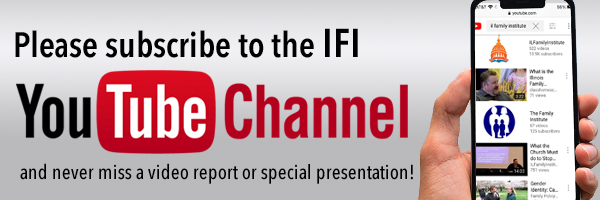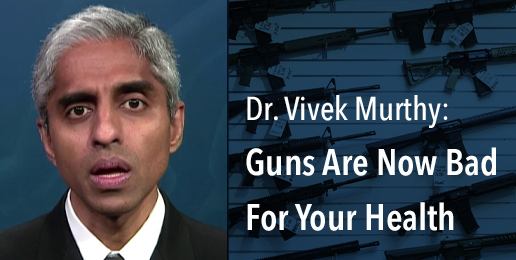
If you can bear it, mentally jump back a few years to the time when COVID hysteria reigned supreme.
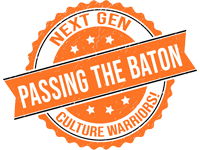
Recall the slogan we constantly heard—”Mask up and stay safe, everyone!” I may have been the only one, but I did find this word choice a little odd.
Isn’t “stay healthy” the appropriate thing to say during the onset of a disease?
Sure, some people did say that, but I heard “stay safe” way more often than I expected; it was almost as if I were being told to wear my seatbelt or something. And—believe it or not—I do remember driving by certain traffic billboards that reminded all the commuters to “buckle up, mask up, stay safe.”
While it definitely wasn’t the worst inaccuracy popularized that year, it still was enough to raise at least one of my eyebrows. It’s just speculation, of course, but to me it was almost as if those in power were trying to legitimize unprecedentedly strict health codes by suddenly labeling it as “safety” instead.
So, before we move on, let’s correct the record on what “health” and “safety” normally mean. As one online source puts it, “health” is the absence of impairment or disease, while “safety” is the absence of injury. A vaccine is there for your health, a hardhat is there for your safety, and so on.
It would have made no sense for my mom to say “stay healthy” when I went biking across town, nor would it have made sense for her to say “stay safe—take your vitamins.” Without being super pedantic about it—I suppose there is some crossover sometimes—I hope you get the picture.
I mention all this because I think the same confusion is popping up now, but in the opposite direction. The U.S. Surgeon General—basically the “nation’s doctor”—issues public health advisories from time to time. Our current U.S. Surgeon General, Dr. Vivek Murthy, has issued advisories on various topics which affect public health in some way, such as youth mental health and health worker well-being.
Yet, in June of this year, U.S. Surgeon General Murthy issued a new advisory that the HHS website labels as a “landmark” declaration on an unprecedented topic. It is titled “Firearm Violence: A Public Health Crisis in America”.
One of my initial reactions took me right back to COVID.
Wait, isn’t this an issue of “public safety?” Why is the U.S. Surgeon General weighing in on violent weapons? As I skimmed through the report looking for the main themes, I noticed two main arguments.
First, obviously, “firearm violence” harms the victims. Second, however, “firearm violence” causes psychological harm to most everybody else—from family members, to direct witnesses, to the 79% of Americans who reportedly experience “stress from the possibility of a mass shooting” (p. 18).
Okay, I can see how violence implicating firearms can have effects on health and mental health. But it seems to me that something must affect health in a more direct fashion in order for it to be a legitimate “public health crisis.”
What’s to stop the U.S. Surgeon General from classifying anything else that harms a lot of people as a “public health crisis?”
What about traffic deaths, for example? After all, their fatality rates were almost the same last year—while 42,000 people reportedly died from “gun injuries,” an estimated 40,990 died from traffic injuries.
Would the U.S. Surgeon General call “traffic fatalities” a public health crisis? Or to take the point further, if America entered a war, would that become a public health crisis? Saying so seems to stretch the definition of “public health” beyond what it is intended to mean, and allows the U.S. Surgeon General to issue declarations beyond what he is intended to do.
Further, though, let’s deal with the mental health side of things.
What’s to stop the U.S. Surgeon General from classifying anything else that severely worries people as a “public health crisis?” Last year, among adults between 18 and 34, a full 82% ranked “money” as a significant source of stress in their lives. Would the U.S. Surgeon General proclaim “low-paying jobs” to be a public health crisis as well?
It’s not enough to identify something that’s associated with deaths and stress and then proclaim a “public health crisis” over it. A public health advisory must specifically focus on public health concerns.
I can understand the U.S. Surgeon General’s authority to speak about health, mental health, and the healthcare system, but when the Surgeon General starts speaking on topics that are secondarily related to legitimate health concerns, he essentially gives himself the right to declare anything a “public health crisis.”
Let’s take a specific example from the report.
The report tells us that in 2022, 56.1% of firearm-related deaths were suicides (p. 6). (By the way, that number itself should put a lot of gun-related fears to rest. I’m not downplaying the pain of suicide—I and my family have been personally affected by it—but over half of gun-related deaths occurred because people decided to use guns on themselves.)
Now, if the U.S. Surgeon General wanted to issue a public health report specifically on the mental health factors behind suicide, that would make a lot of sense.
To be fair to him, the report does indeed address mental health issues on page 31. However, when his report also recommends universal background checks and bans on “assault weapons”(pp. 29–30), I’d say he’s no longer operating in his designated “public health” domain.
This rolling-together of legitimate health concerns (about which he is qualified to speak) and other policy goals (about which he is not) gives the entire caboodle the gravitas of an official medical recommendation.
As smart as a medical doctor may be, I’m not sure he’s qualified to tell me we should be banning high-capacity magazines.
Just as we plastered “health” with the gravitas of “safety” in 2020, it seems we’re now plastering “safety” with the gravitas of “health” in 2024. Beware when you hear a term being used in a way you’re not used to hearing.
It might be because someone is trying to convince you of something you’re not used to believing.

